|
There’s an interesting moment in IV.ii that acts a centrepiece for much of 2 Henry VI. Jack Cade, having stated his intentions to lead the people (as the new Protector of the Realm), and set forth his manifesto, is interrupted by a messenger. MICHAEL There are a few elements to break down here, but first a bit of context. Jack Cade is from Kent, and was chosen by the people of Kent to lead them. According to Alison Wier’s The Wars of the Roses, this was due to his status and reputation. She paints Cade as a bold and strategic man, with previous military experience, and a shrewd mind. Historically, his manifesto, and reasons for leading an uprising against the King, stemmed form the dire economic situations facing England, the corruption in court, and the losing of English lands in France. With the exception of this last point, Shakespeare, as he often does, veers off history’s path a bit. Shakespeare’s Cade is boisterous, rash, and while his men follow him at first, they clearly hold no reverence for him as is seen in their many side comments (and insults) while Cade is outlining his vision for a better future. Taking all that, let us return to the above passage. The messenger enters to warns Cade that Sir Humphrey and the king’s forces are coming, presumably to break up the rebels and maybe arrest Cade himself. Cade refers to him as a particular fellow and responds to the warning by saying that he will beat the messenger if he runs. I highlight the “particular fellow” bit because it highlights an aspect of Cade’s’ character. Schmidt’s lexicon defines this use of “particular” as “Cade’s jest”, and the Norton Shakespeare clarifies it a bit further as “private (as opposed to ‘general’ in the previous line)”. Cade is having fun in this moment, utilizing wordplay reserved for the fools. But Cade is not a fool, at least in the Shakespearean sense. Threatening violence against a man coming to deliver a warning is one thing, but look at the moment immediately preceding the messenger’s entrance. Before the messenger enters, we are treated to the blueprints of the more famous “Cinna the Poet” scene from III.iii of Julius Caesar. Cade’s mob brings him a man, Emmanuel, and demands his death because Emmanuel is a Clerk. He is educated, and in Cade's world, all educated men must die. Cade says of Emmanuel: The man is a proper man, of mine honour; unless I find him guilty, he shall not die. Come hither, sirrah, I must examine thee: But, upon finding out that Emmanuel writes his name rather than uses a mark like an “honest, plain-dealing man”, he pronounces his sentence. Away with him, I say! hang him with his pen and ink-horn about his neck. 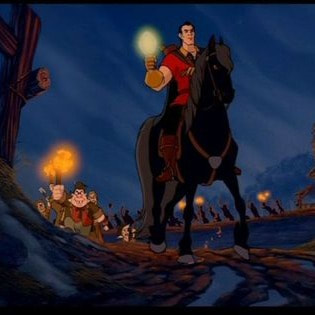 Like the mob in Julius Caesar, Cade and his men are willing to murder for no more reason than a man’s innocent profession. The historical Jack Cade rose up in protest of the injustices in court and in the legal system, but by all accounts, he didn’t go around killing lawyers. That Shakespeare’s Cade does, and engages in wordplay a line later, demonstrates a dangerously unhinged man. This puts Cade in line with many of the other characters in 2 Henry VI: ambitious, and dangerous. But back to the exchange with the messenger. Cade decides that the way to deal with Sir Humphrey is to equal him. He must confront Sir Humphrey on the same level. He “asks” if Sir Humphrey is but a knight, and answering his own question, decides that he will make himself a knight to create that equal footing. I say he answers his own question because there is no recognition of the messenger’s “no”. Maybe. Again, the Norton Shakespeare notes that the messenger’s “no” means he is “nothing but a knight”, but I would have to disagree. I think the messenger is implying that Sir Humphrey is more than a knight, but Cade, caught in his own ideas, does not even hear the man. By contradicting him instead of confirming his claim, the messenger demonstrates Cade’s egotism, and his men’s willingness to speak out against him. The commoners here are not flatterers, and they are not (for the most part) mindless. Cade then kneels, and orders himself to rise up as Sir John Mortimer, a name that carries importance both historically and in the play, but I’ll leave that for now. What I want to focus on with this self-dubbing is the idea of power. Who has it? How is it come by? How can it be taken? These are the essential questions of the play, and the commentary that seems to be made throughout the play is that the act of claiming power is as meaningless as Jack Cade kneeling down and dubbing himself a knight. Before I move on from this microcosm of the play, allow me to shoo the potential elephant from the room. As of the time of writing, 2 Henry VI has been enjoying a bit of a renaissance. One reason for this is the same reason that the York Tetralogy (the 3 Henry plays and Richard III) fronts Greenblatt’s recent work, Tyrant. There has been an increased emphasis on the nature of tyranny, particularly those who claim power by distorting truth. It may have something to do with certain events that occurred around November, 2016 — but I’m just speculating. The other reason for the play’s resurgence is not despot related at all. Part of the New Oxford Shakespeare’s project delved into the matter of authorship, looking at linguistic and stylistic patterns to determine who may have written what in Shakespeare’s canon. Using digital analytics to examine word choice (in far too simple terms, which words or phrases are more commonly used by which author) the New Oxford Shakespeare editors have credited Christopher Marlowe as co-author of the three Henry plays. Not everyone is in agreement over this, and I have been vehement in my avoidance of the “author debate.” I bring this up for two reasons. The first is that, when it comes to 2 Henry Vi, Act 4 is a bit of an anomaly. The entire Jack Cade plot exists almost on its own, tangentially related to the larger story (at least from a plot perspective). Constance Grady, in this Vox article, notes that: Scholars have thought for years that Shakespeare might have written the Henry VI plays in collaboration with someone else, mostly because they are, to put it kindly, uneven. In 1949, T. M. Parrott called 1 Henry VI a “poor play … a thing of shreds and patches, and only a few of the patches can be recognized as sewn on by Shakespeare’s hand.” 1 Henry VI is certainly episodic, probably Shakespeare’s most episodic, next only to King John. 2 Henry VI is less so, but Act 4 is. And here’s the tie: Act 4 of 2 Henry VI is the specific part of this play that the New Oxford Shakespeare editors point to as being written by Marlowe. So yes, the centrepiece, the microcosm of this play, may have not been written by Shakespeare, and yet, for the purposes of clarity, I will continue to refer to Shakespeare as the author of this play in its entirety so that I may speak to the play in its entirety. And that’s all I have to say about that I will begin with this play proper by looking at the first essential question: who has power? I should probably start at the top with good young King Henry VI. His first action — a performative utterance — is to order his men: Lords, with one cheerful voice welcome my love. (I.i) Which of course they do. A minor act, but one of his only proactive actions throughout the play. For the most part, Henry is reactive, ordering two feuding parties to stop, or making decisions under pressure from his lords, or from the commoners. He strips Gloucester of his power under pressure from his lords, despite consistently insisting that Gloucester is innocent. He bows to pressure from the rioting commons after they (with no real evidence despite being right) accuse Suffolk of murdering Gloucester. He imprisons Sommerset on York’s orders, and quickly releases him on Margaret’s. All in all, Richard III is correct when he says: 2 Henry VI is great at consistently pointing out Henry’s ineptitude. From the start, we see him as a good man, but a terrible king. In the opening scene, Gloucester (Henry’s uncle, Protector, and closest ally) reads the agreement negotiated by Suffolk on Henry’s behalf with Charles of France. In it: Henry shall espouse the Lady Margaret, At which point, Gloucester is no longer able to keep reading. Unaware Henry does not care why his uncle has become choked up, and gives the letter to his other uncle, the Cardinal of Winchester, to finish, which he does. The French lands conquered by Henry V and the current lords (as seen in 1 Henry VI) are given to Margaret’s father, Margaret brings no dowry, and Suffolk is made a duke: all is well. The scene ends with the remaining lords (York, Warwick, Salisbury, Buckingham, Gloucester, and Winchester) bickering about the losses they have suffered. York preempts his son by confiding in the audience that the crown is not fit for Henry’s “church-like humours”. He also lays out his plan to claim the throne, which he will, sort of, accomplish by the end of the trilogy. But it is not just former soldiers and lords who are unhappy with Henry’s piety. Queen Margaret shares her frustration with her confidant and implied lover, Suffolk. What shall King Henry be a pupil still In case you didn’t get the point, this speech hammers it home. Henry is a king by birth, but has no desire to lead in a cynical world, and no skills to rule on his own two feet. Margaret’s speech, and this scene, also demonstrates who has the real power in England: Humphrey, Duke of Gloucester (Lord Protector of England, born 1390, died 1447). So let us shift focus for a moment to Humphrey, Duke of Gloucester (Lord Protector of England, born 1390, died 1447). Like Henry, his power comes from his birth. While I will not dive into it here, this is an important matter considering that the shadow that looms over this play (as well as its surrounding plays) is the usurping of the throne by Henry IV. Henry IV stole the throne, Henry V solidified his right to it, Henry VI and by extension Humphrey were given it. But unlike Henry who was able to hold on to his power for a time by virtue of birth (and the fact that the ground laid by his grandfather and father became very beneficial to those surrounding Henry), Humphrey had to work to maintain what power he had, which was constantly under siege by those around him. Turning back to Weir, she notes that the lords made sure that Humphrey’s position as Protector came with no authority but to keep the peace and summon Parliament. Shakespeare’s version bears this out, with the other lords constantly questioning why Humphrey should have power at all. To either best serve the realm, or increase his power (depending on whom you side with), Humphrey allies himself with the commoners. Far too quickly after Humphrey is murdered, Warwick rushes in to report that: The commons, like an angry hive of bees The loyalty and subsequent rage of the commoners unites Humphrey with Jack Cade, both managed to become figureheads of the downtrodden masses. Are we meant to see Humphrey as a more legitimate Cade? He is better spoken, and seemingly has a better track record, although his fellow lords lay a litany of charges against him in III.I, which in part results in his removal from power. The charges may or may not be true, but just as Humphrey was given power by Henry V, he can only hold on to it by the grace of Henry VI, who, while maintaining Humphrey’s innocence, bows to the pressure from his lords and wife. And all of this would be fine for the action of the first half of the play — which centres on the downfall of Humphrey, Duke of Gloucester (Lord Proector of England….) — but that is not the type of play we are dealing with. If Cade creates his power by dubbing himself a knight, Humphrey must lose his power by greater means than alleged treason. So we must turn to the witch. Humphrey’s wife, Elanor, has a bit of the Lady Macbeth in her. In her first scene, she confesses to her husband: Methought I sat in seat of majesty Elanor wants to be queen, but is stuck in her place in “Fortune’s pageant” because Humprhey refuses to rise any higher than he is (Duke of Gloucester, Protector of England). She is not as strong as her future self (Lady Macbeth) and Humphrey is not as pliable as Macbeth. It may be because instead of Humphrey visiting the witch, it is Elanor. She seeks help from a “wizard” and “witch” to learn how her fortunes may rise, believing in the promise from her friend Hume, who, like Macbeth’s witches, greet the humble duchess as queen. HUME After Elanor leaves, Hume reveals to us that he works for Suffolk, with the intent of trapping Elanor and thereby destroying Humphrey. It is an odd moment in the play, included mainly for the spectacle of the witch, Margaret Jordan, communing with the Spirits before she and her party are broken up by York’s men. While the scene does have a consequence — Elanor is exiled to the Isle of Man — it does not necessarily destroy Humphrey. This is accomplished both by the aforementioned accusations, and ultimately, his murder. So why include the supernatural subplot beyond spectacle? For that, we return to Cade dubbing himself a knight. Power is claimed and held in a theatrical mode: Cade and Elanor both believe that putting on a show will lead to control.  Finally, there is York, who may or may not be the protagonist of this play. If Humphrey plays the role of Caesar — the one who holds power only to be defeated by a conspiracy of lords halfway through the play — York is Marc Antony, who fills the vacuum and wrestles control from his opponent (in this case Henry, Margaret, and Somerset). What separates York from the rest of the lords, except potentially Henry, is that unlike Somerset, Margaret, or the Cardinal, York does not seem to claim power in a Cade-like manner, but rather through the more traditional means of his birth, as he painfully lays out to his allies Warwick and Salisbury. Edward the Third, my lords, had seven sons: York continues through the line of succession until he establishes his tie to the crown, being that as he is descended from Edward III’s third son, whereas Henry and the Lancaster line is descended from Edward III’s fourth son. Thus, York has the more legitimate claim to the throne. Problem solved. Except… While this revelation does cement support from two strong allies, it does ultimately help Richard, Duke of York. He understands this and advises his allies to Wink at the Duke of Suffolk's insolence, York knows that that birthright amounts to a hill of beans in this crazy world. Humphrey, though not a ruler by birth or might, controls the king and the commoners, and in York’s eyes, is the true power that must be toppled. But York will not risk offending anyone by toppling Humphrey himself. He lends his support in the matter with Eleanor, he lends his voice when the lords gather together to accuse Humphrey of treason, but at the end of the day, it is the Cardinal Beaufort and Suffolk who earns the king and commoners’ ire when the dust settles and Humphrey is dead. So while York’s path may be the same as Cade’s — proverbially kneeling before Warwick and Salisbury to crown himself king — he proves to be wiser by acting in the shadows, letting his candle burn low, as opposed to Cade (who was goaded by York to lead his revolution as one of York’s diversion tactics), whose candle burns at both ends. So we can conclude by saying that York’s eventual power comes not through his lineage but through is cunning. Except… There is a further wrinkle. For, despite his planning and potting, what ultimately causes Richard to win the day is a bit of luck and manpower. A messenger informs the lords that there is a revolt in Ireland. York and Somerset spar over Somerset’s failure in France, York arguing that if he were regent he would not have lost France as Somerset had. This prompts the Cardinal to suggest that York try his fortune in Ireland to back up his claim. The Cardinal thinks he is cleverly removing York from the scene, but York eagerly accepts the position. York is supplied with an army and sent to Ireland, from where he quickly returns to lead this army against Henry and Somerset. This form of usurpation, even if we are meant to side with York, more closely models Henry IV, who was sent into exile but returned to claim the crown from Richard II. The brute force which York and his men slam against Henry et al is more in line with Jack Cade, but where Cade fell, York succeeded.
Is Cade’s story any more ridiculous than other grabs for power in this play? Elanor, who tried to prop herself up with black magic. Humphrey who fell into power and lost it for doing what he thought was his job. Cardinal Beaufort, who died of guilt after years of political sparring with Humphrey. Suffolk, killed by pirates. Somerset, after constant cowardice, killed by a child. And York, who just happened to get himself an army.
2 Henry VI shows us that power is an absurd concept propped up by absurd people and can be taken as easily as it is obtained. And as Iden says, we are all eventually left for the crows to feed upon. Literally or metaphorically.
0 Comments
Leave a Reply. |

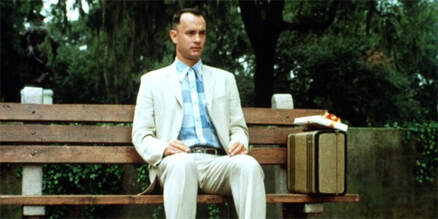
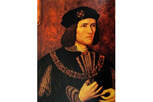
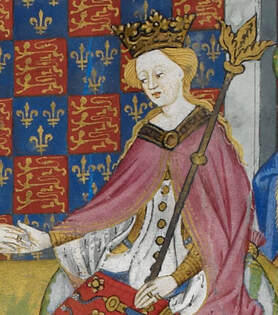
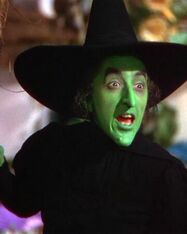


 RSS Feed
RSS Feed